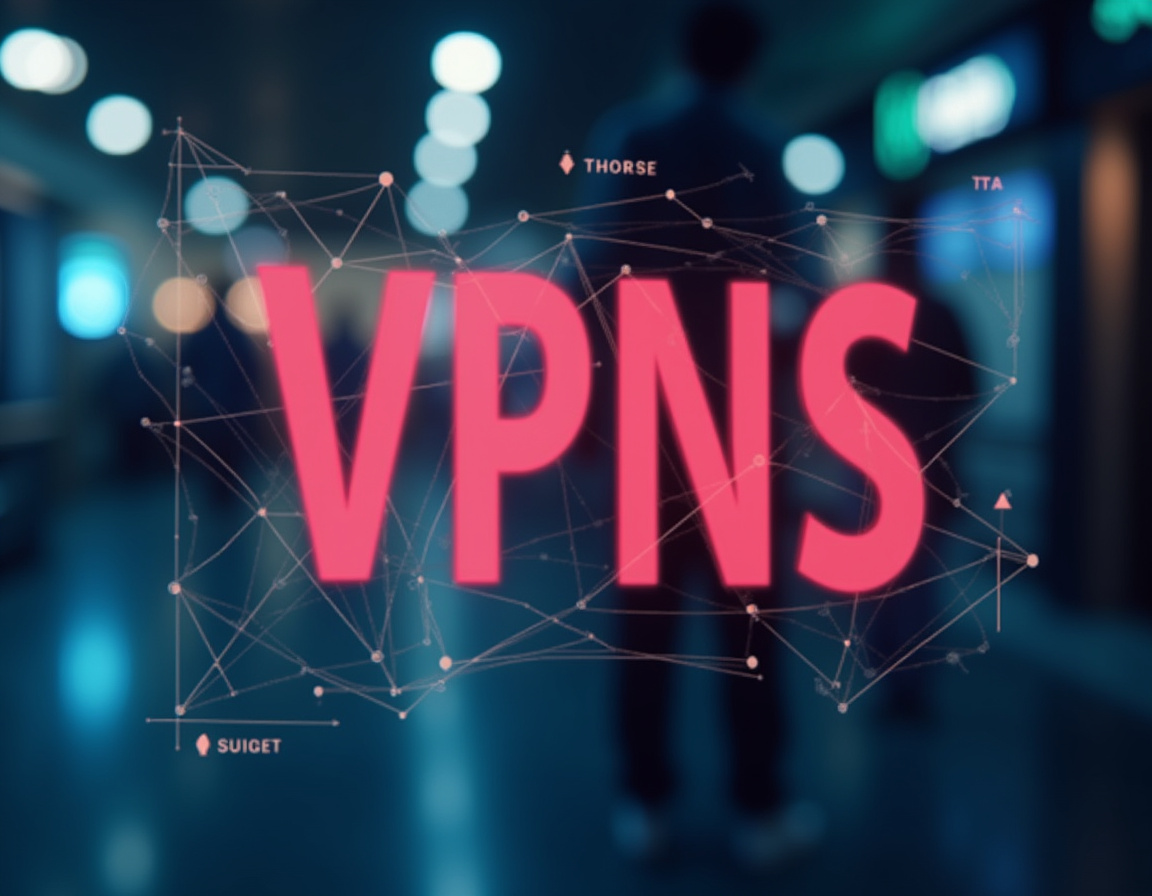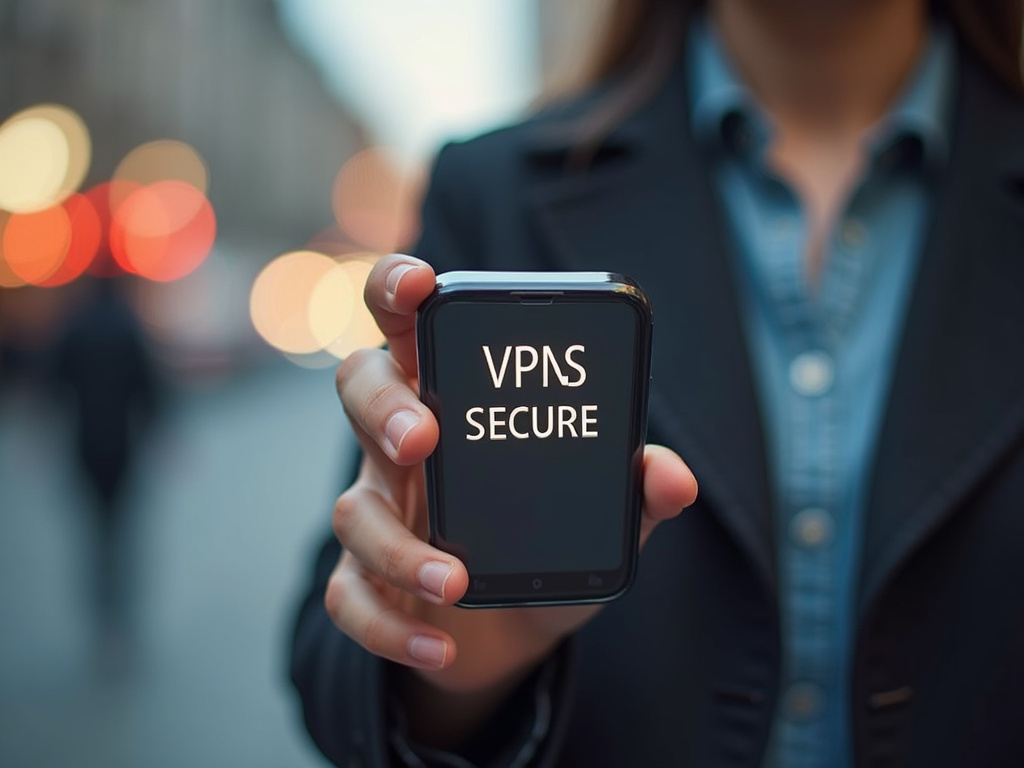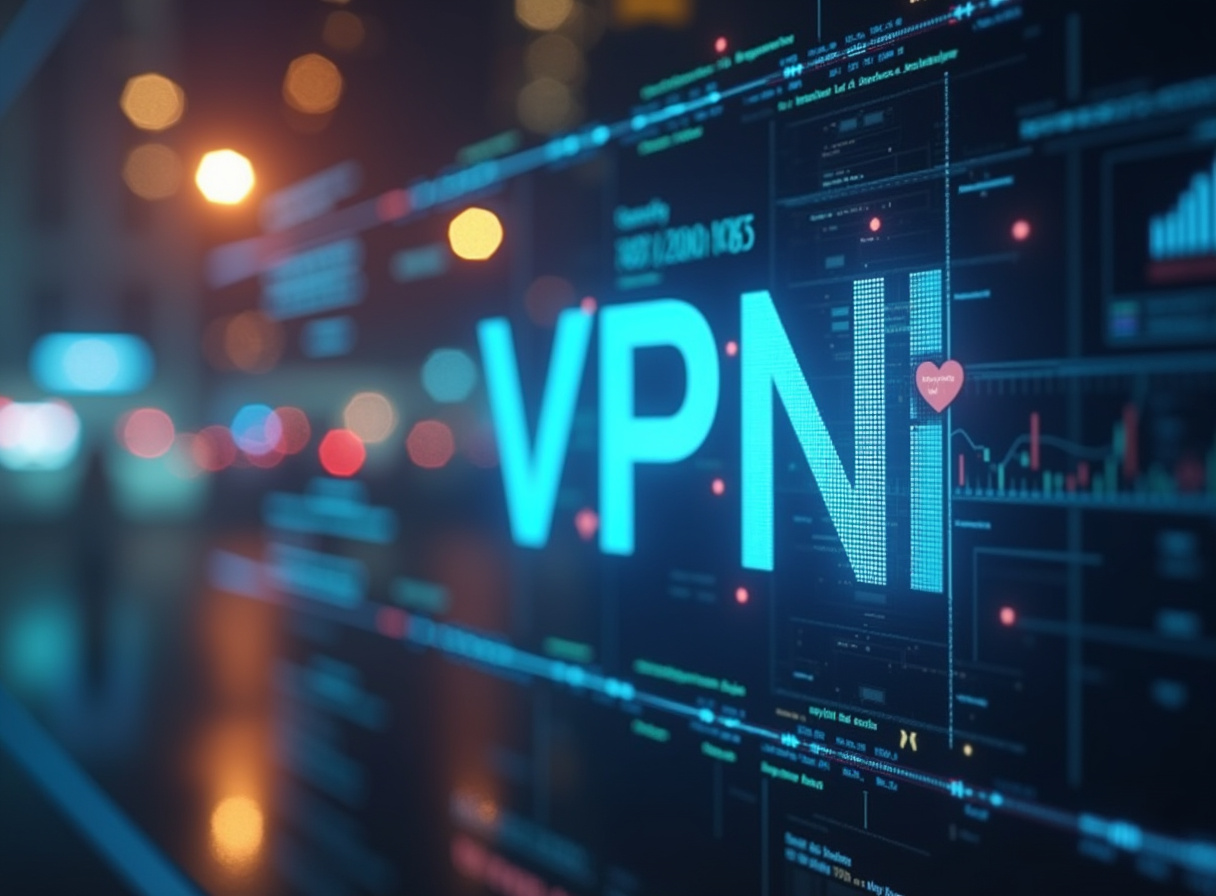VPNs for Ecommerce Startups: Protecting Customer Transactions

Table of Contents
The Imperative of VPNs for Ecommerce Startups: Securing Growth and Customer Trust
In the fast-paced world of e-commerce, startups face a constant battle to establish themselves, gain customer trust, and secure their operations against ever-evolving cyber threats. Protecting customer transactions is paramount, not only for maintaining a positive reputation but also for ensuring the long-term viability of the business. A critical tool in achieving this protection is a Virtual Private Network or VPN.
This article explores the vital role VPNs play for e-commerce startups, delving into how they safeguard customer transactions, enhance data protection, and ultimately contribute to sustainable business growth. For an e-commerce startup, customer transaction security is more than just a best practice – it’s a fundamental requirement. Each online interaction is a potential point of vulnerability, with sensitive information like credit card details, addresses, and personal data at risk of interception by malicious actors.
A VPN acts as a crucial shield in this online environment. It establishes a secure, encrypted tunnel between the customer’s device and the e-commerce website’s server. This encryption transforms the data, making it unreadable to anyone who might try to eavesdrop on the connection.
Imagine sending a letter in a locked box – only the intended recipient, with the correct key, can unlock and read the contents. A VPN provides that locked box for every piece of data exchanged during a transaction. This encryption is particularly vital during the payment process.
When customers enter their credit card information on a website, that data travels across the internet. Without encryption, it could potentially be intercepted by hackers lurking on public Wi-Fi networks or through compromised routers. A VPN ensures that this sensitive financial information is scrambled, preventing it from being stolen and used for fraudulent purposes.
Beyond encryption, a VPN also offers a valuable layer of anonymity. In the digital realm, every device has a unique identifier called an IP address, which can be used to track a user’s location and browsing activity. A VPN masks this IP address, replacing it with one from the VPN server.
This effectively hides the customer’s real location, making it much more difficult for cybercriminals to target them specifically. This anonymity is not about hiding illegal activities, it’s about protecting individuals from targeted attacks and privacy invasions. Imagine shielding your home address from unwanted mail and unsolicited visitors – a VPN does the same for your online presence.
Furthermore, a VPN can protect against man-in-the-middle attacks, a sophisticated form of cybercrime where hackers intercept communication between a customer and the e-commerce server. They might create a fake website that looks identical to the real one, tricking customers into entering their login credentials or payment information. A VPN's secure tunnel makes it virtually impossible for hackers to insert themselves into the communication stream, ensuring that customers are always interacting directly with the legitimate e-commerce website.
This protection is not just for the customer's benefit; it also safeguards the e-commerce startup's reputation and prevents potential legal liabilities. By actively securing the customer journey, startups build a reputation as trustworthy and reliable, increasing customer confidence and fostering long-term relationships. This proactive approach to security can become a powerful marketing advantage, attracting customers who prioritize data protection and peace of mind.
In a digital landscape where data breaches are becoming increasingly common, showcasing a strong commitment to customer transaction security is a key differentiator for e-commerce startups.
Core VPN Functionality and Benefits: Encryption, Anonymity, and Data Protection for Ecommerce
Beyond the immediate benefits of secured transactions, a VPN contributes significantly to an e-commerce startup's overall data protection strategy, fostering a more resilient and secure business. In today's digitally driven economy, data is a valuable asset, and protecting it is paramount. A VPN is not just about safeguarding customer information; it's about securing every facet of the business, from internal communications to sensitive financial data.
Think of it as a digital vault securing not just customer deposits, but also the blueprints to your entire operation. For instance, startups often rely on cloud-based services for data storage, customer relationship management (CRM), and other critical functions. While these services offer convenience and scalability, they also introduce potential security vulnerabilities.
A VPN encrypts all data transmitted to and from these cloud services, ensuring that sensitive information is protected from unauthorized access. Without encryption, data stored in the cloud could be vulnerable to interception by hackers or even accidental exposure due to misconfigured security settings. A VPN essentially extends the security perimeter of the e-commerce startup, safeguarding its data wherever it resides.
Moreover, e-commerce startups frequently engage with remote teams or rely on employees accessing company resources from various locations. This remote work environment introduces unique security challenges, particularly when employees are using public Wi-Fi networks, which are notoriously insecure. A VPN provides a secure and encrypted connection for remote employees, ensuring that all data transmitted between their devices and the company server is protected.
This is especially vital when employees are accessing sensitive information such as financial records, customer databases, or product designs. Imagine a construction site where all communication and blueprints are transmitted on open channels, easily intercepted and misused. A VPN provides a secure, private channel for teams to collaborate, regardless of location.
The use of a VPN also helps e-commerce startups comply with increasingly stringent data privacy regulations. Laws such as the General Data Protection Regulation (GDPR) and the California Consumer Privacy Act (CCPA) impose strict requirements on how businesses collect, use, and protect personal data. A VPN can help startups meet these requirements by encrypting data in transit, masking IP addresses, and providing a secure environment for processing personal information.
Failure to comply with these regulations can result in hefty fines and reputational damage. A VPN effectively demonstrates a proactive approach to data protection, reassuring customers and regulators alike that the startup takes data privacy seriously. Furthermore, a VPN can provide e-commerce startups with valuable insights into the security posture of their network.
Many VPN services offer logging and monitoring capabilities, which allow startups to track network activity, identify potential security threats, and respond quickly to incidents. This proactive monitoring can help startups detect and prevent data breaches before they occur, minimizing the impact on their business. Imagine a security system for your network that not only provides protection but also alerts you to potential threats, allowing you to take preemptive action.
Beyond data protection, a VPN can also enhance employee productivity. By providing a secure and reliable connection, employees can access company resources and collaborate more efficiently, regardless of their location. This can be particularly beneficial for startups that rely on geographically distributed teams or have employees who travel frequently.
A secure and reliable connection fosters better communication and knowledge sharing, leading to greater innovation and efficiency. In a dynamic e-commerce environment, the ability to adapt quickly and innovate is crucial for survival, and a VPN can play a key role in facilitating these processes. It allows teams to collaborate securely and seamlessly, boosting overall productivity and contributing directly to business growth.
data protection
Central to the successful integration of a VPN for an e-commerce startup is a clear understanding of the available options and their suitability. The decision of which VPN to choose typically hinges on factors such as data protection features, security protocols, server locations, speed, and scalability, aligning with the business's current needs and accommodating future expansion. An overarching aspect of VPN usability revolves around a well-defined understanding of standards.
As a consequence of operating within the e-commerce sector, data protection is non-negotiable. The VPN service selected should ideally adhere to stringent security standards, such as AES-256 encryption, to ensure maximum protection of sensitive data. Look for VPNs that explicitly state their adherence to industry best practices and offer transparent security audits to verify their claims.
Furthermore, a critical factor to consider is the VPN provider's logging policy. A reputable provider should have a strict "no-logs" policy, meaning they do not track or store any user activity, including browsing history, IP addresses, or connection timestamps. This ensures that your data remains private and cannot be accessed by third parties, including law enforcement agencies.
Carefully review the VPN provider's privacy policy to understand their logging practices. Be wary of providers with vague or ambiguous language, as they may be collecting more data than they disclose. Choose a provider that is transparent about its logging policy and committed to protecting user privacy.
In addition to data protection, relies heavily on the VPN's security protocols. The most secure and widely used protocols include OpenVPN, IKEv2/IPsec, and WireGuard. These protocols offer robust encryption and authentication mechanisms that protect against various types of cyber attacks.
Avoid VPNs that use outdated or less secure protocols, such as PPTP, as they are vulnerable to known exploits. Research the different security protocols and understand their strengths and weaknesses before making a decision. Choose a VPN that offers a variety of protocols and allows you to select the one that best suits your needs.
OpenVPN is generally considered the most secure option, while WireGuard offers a good balance of security and speed. Beyond security features, the VPN's server locations are also an important consideration. If your e-commerce startup targets customers in specific geographic regions, you need to choose a VPN that has servers in those locations.
This will ensure that your customers can access your website quickly and reliably, regardless of their location. A wide range of server locations can also enable you to bypass geo-restrictions and access content that may be blocked in certain countries. Consider the geographic distribution of your customer base and choose a VPN that offers servers in those regions.
A VPN with a large and diverse network of servers will provide greater flexibility and performance. also entails a need for speed and reliability. Slow connection speeds can negatively impact the user experience and lead to lost sales.
Choose a that offers fast and reliable connections, even when using encryption. Look for providers that have optimized their servers for speed and performance. Test the VPN's speed by connecting to different servers and measuring the download and upload speeds.
Choose a provider that consistently delivers fast and reliable connections, even during peak hours. Finally, scalability is a key consideration for e-commerce startups that are experiencing rapid . Choose a VPN that can scale with your business needs.
This means that the VPN should be able to handle an increasing number of users and devices without compromising performance. Look for providers that offer flexible pricing plans and allow you to easily add or remove users as needed. As your business grows, your VPN needs will evolve.
Choose a provider that can adapt to your changing needs and provide you with the support you need to scale your business effectively. In essence, a robust VPN solution should act as a secure foundation, easily expanding alongside the burgeoning e-commerce startup, providing unparalleled security and reliability, regardless of the growth trajectory.
data protection
Successfully implementing a VPN within an e-commerce startup requires a strategic approach, extending beyond simply selecting a provider and installing the software. It necessitates a comprehensive integration plan that aligns with existing security protocols and operational workflows, ensuring seamless functionality and minimal disruption to the customer experience. A crucial first step is to conduct a thorough security audit to identify potential vulnerabilities in your current infrastructure.
This audit should assess your website's security, your network security, and your data storage practices. The results of this audit will help you determine the specific security needs of your e-commerce startup and guide your VPN implementation strategy. This will enable you to identify the critical areas where a VPN can provide the most significant benefit and ensure compliance with relevant data privacy regulations.
Following the security audit, defining a clear VPN usage policy is crucial. This policy should outline the purpose of the VPN, the authorized users, the acceptable use cases, and the security protocols that must be followed. For example, the policy should specify whether the VPN should be used for all internet traffic or only for specific activities, such as accessing sensitive data or connecting to public Wi-Fi networks.
It should also outline the consequences of violating the policy, such as suspension or termination of access. A well-defined VPN usage policy ensures that employees understand their responsibilities and use the VPN in a secure and responsible manner furthering . Integration with existing security systems is crucial for a cohesive security posture.
Your VPN should seamlessly integrate with your existing firewalls, intrusion detection systems, and other security tools creating a layered defense against cyber threats. This integration can be achieved by configuring your VPN to work with your existing security protocols, ensuring that all traffic is properly filtered and monitored. Some VPN providers offer integration with Security Information and Event Management (SIEM) systems, allowing you to correlate VPN logs with other security events to identify potential security incidents.
This proactive monitoring and correlation can help you detect and respond to threats more quickly and effectively. Training employees on how to use the VPN properly is an often-overlooked but essential aspect of implementation. Employees need to understand the purpose of the VPN, how to connect to it, and how to troubleshoot common issues.
They should also be trained on how to identify potential security threats and how to report them to the IT department. Consider implementing regular security awareness training to keep employees informed about the latest threats and best practices for online safety. This training should cover topics such as phishing scams, malware attacks, and social engineering techniques and should be tailored to the specific needs of your e-commerce startup.
Regular monitoring and maintenance are essential for ensuring the ongoing effectiveness of your VPN. Monitor VPN logs for suspicious activity, such as unusual connection patterns or attempts to access restricted resources. Regularly update the VPN software and security patches to protect against known vulnerabilities.
Conduct periodic security audits to assess the effectiveness of your VPN and identify any areas for improvement. This proactive approach will help you maintain a strong security posture and protect your e-commerce startup from cyber threats. It allows you to leverage a for its intended purposes.
Finally, consider the customer support offered by the VPN provider. Choose a provider that offers reliable and responsive customer support to help you troubleshoot any issues that may arise. Look for providers that offer 24/7 support via email, phone, or chat.
Before committing to a VPN provider, test their customer support by contacting them with a few questions. Assess their responsiveness, knowledge, and helpfulness. Good customer support can be invaluable in resolving technical issues and ensuring the smooth operation of your VPN.
Remember, the best way to secure is a layered approach that requires a dedicated team that can respond to issues.
business growth
The strategic value of a VPN for an e-commerce startup extends far beyond immediate security benefits, representing a crucial investment in long-term and customer trust. Viewing a VPN solely as a reactive measure against cyber threats overlooks its potential as a proactive tool for building a strong brand reputation, enhancing customer loyalty, and facilitating expansion into new markets. Ultimately, your acts as a trustmark.
By prioritizing customer transaction security and data protection, e-commerce startups can differentiate themselves from competitors and attract customers who are increasingly concerned about online privacy. In today's digital landscape, customers are bombarded with news of data breaches and cyber attacks, making them increasingly wary of sharing their personal information online. By implementing a VPN and clearly communicating its benefits to customers, e-commerce startups can foster a sense of security and confidence, encouraging customers to engage in online transactions without hesitation.
This transparency and commitment to security can be a powerful marketing advantage, attracting customers who are willing to pay a premium for peace of mind. Furthermore, a VPN can play a vital role in retaining existing customers. Customers are more likely to continue doing business with an e-commerce startup that they trust to protect their data.
By minimizing the risk of data breaches and financial fraud, a VPN can help build long-term customer relationships and foster loyalty. Consider offering incentives to customers who use a VPN when shopping on your website, such as discounts or free shipping. This can encourage more customers to use a VPN and further enhance their sense of security.
By actively promoting the use of a VPN, e-commerce startups send a clear message that they value their customers' privacy and security. Beyond customer trust and loyalty, a VPN can facilitate expansion into new markets. Some countries have strict regulations on online transactions or censor internet content, making it difficult for e-commerce startups to operate internationally.
A VPN can help startups circumvent these restrictions by masking their IP address and routing their traffic through servers in other countries. This allows startups to access new markets and reach a wider audience without compromising their security. By leveraging a VPN, e-commerce startups can conduct market research in new regions without revealing their true location, allowing them to assess the potential for expansion without attracting unwanted attention.
A strategic VPN implementation also includes leveraging its capabilities for secure remote collaboration, crucial in today's distributed work environments. By providing secure access to company resources and data, VPNs enable employees to work from anywhere while maintaining a high level of security. This increased flexibility can improve employee morale, reduce operational costs, and provide access to a wider talent pool.
This is a central aspect of a . Startups can use VPNs to streamline their operations, improve employee productivity, and reduce their overall IT costs. In conclusion, a VPN is not just a security tool; it’s a strategic asset for e-commerce startups.
By prioritizing customer transaction security and data protection, startups can build a strong brand reputation, enhance customer loyalty, and facilitate sustainable business growth. Choosing the right VPN provider, implementing a comprehensive security policy, and training employees on proper usage are all essential steps for maximizing the value of this vital tool. In an increasingly competitive and threat-filled online landscape, a VPN is no longer an option but a necessity for e-commerce startups seeking long-term success.
The proactive implementation of these security measures will result in higher potential for revenue and customer trust.
Stay Updated
Get the latest VPN news, tips, and exclusive deals to your inbox.




